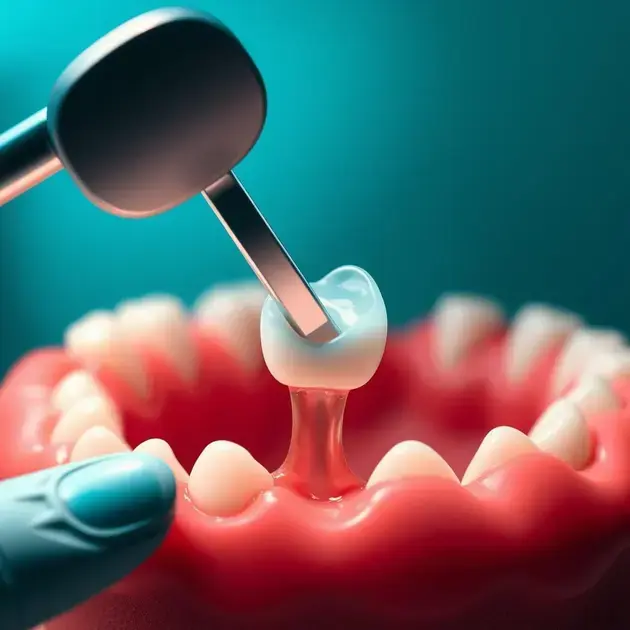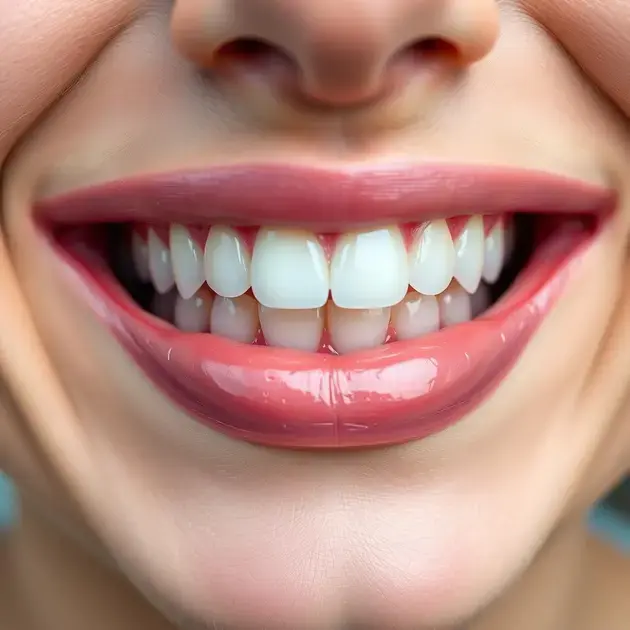Knowing how to determine if you have gum disease is essential for maintaining oral health and preventing more severe conditions. Gum disease, or periodontal disease, often sneaks up silently, showing few signs as it begins to affect the gums and bones around your teeth. Its prevalence is high, affecting millions worldwide, making it imperative to recognize symptoms early.
Common indicators of gum disease include red, swollen, or tender gums that may bleed when you brush or floss. Bad breath that doesn’t go away, a change in how your teeth fit together when you bite, or even teeth that are loose can all be signs of advancing gum disease. Early detection and treatment can help manage the symptoms and prevent progression, safeguarding your oral and overall health.

Recognizing Early Signs of Gum Disease
Gum disease, also known as periodontal disease, can often go unnoticed in its early stages. Recognizing the signs and symptoms early on can help prevent further complications down the line. Here are some common indicators to look out for:
1. Bleeding Gums
If you notice your gums bleeding during brushing or flossing, it could be a sign of early gum disease. Pay attention to any changes in the frequency or amount of bleeding.
2. Swollen or Tender Gums
Gums that are swollen, tender, or red may indicate inflammation caused by gum disease. Keep an eye out for persistent discomfort or sensitivity.
3. Bad Breath
Chronic bad breath that persists even after brushing and using mouthwash could be a sign of gum disease. This is often caused by the presence of bacteria in the mouth.
4. Receding Gums
As gum disease progresses, you may notice your gums pulling away from your teeth, leading to a receding gumline. This can expose the roots of the teeth and cause sensitivity.
5. Loose Teeth
Advanced gum disease can result in loose or shifting teeth due to the damage to the supporting structures of the teeth. If you notice any changes in your bite or the spacing of your teeth, it’s essential to seek dental advice.
The Importance of Early Detection and Treatment
Early detection and treatment of gum disease are crucial in preventing further damage to your oral health. Ignoring the warning signs can lead to more severe complications, including tooth loss and gum recession. Here’s why early intervention is essential:
1. Preventing Progression
By catching gum disease early, you can prevent it from progressing to more advanced stages, which may require invasive treatments such as surgery.
2. Preserving Oral Health
Timely treatment can help preserve your oral health and prevent long-term consequences associated with gum disease, such as bone loss and chronic infections.
3. Improving Overall Wellbeing
Gum disease has been linked to various systemic health conditions, including heart disease and diabetes. Treating gum disease early can help improve your overall wellbeing and reduce the risk of developing these conditions.
4. Cost-Effective Solutions
Addressing gum disease in its early stages is often more cost-effective than waiting until it has progressed significantly. Regular dental check-ups and cleanings can help catch any issues early on.
5. Long-Term Smile Preservation
By seeking early treatment for gum disease, you can maintain a healthy smile and avoid the need for extensive restorative procedures in the future. Taking care of your gums is essential for overall oral health.

Methods for Preventing Gum Disease
Preventing gum disease is essential for maintaining good oral health. One effective method is to brush your teeth twice a day with a fluoride toothpaste. This helps to remove plaque and bacteria that can lead to gum disease. Additionally, using dental floss to clean between your teeth can help prevent the buildup of plaque in hard-to-reach areas.
Another important step in preventing gum disease is to visit your dentist regularly for check-ups and cleanings. Your dentist can identify early signs of gum disease and provide treatment to prevent it from progressing. In some cases, a deep cleaning may be recommended to remove plaque and tartar below the gumline.
Furthermore, maintaining a balanced diet rich in fruits and vegetables can also help prevent gum disease. Foods high in sugar and carbohydrates can contribute to the growth of harmful bacteria in the mouth, leading to gum inflammation and disease. Drinking plenty of water and avoiding tobacco products are also important factors in gum disease prevention.
Lastly, practicing good oral hygiene habits at home, such as using an antiseptic mouthwash and replacing your toothbrush regularly, can further reduce your risk of developing gum disease. By following these methods for preventing gum disease, you can protect your oral health and overall well-being.
Tips for Maintaining Good Oral Hygiene
Maintaining good oral hygiene is key to preventing gum disease and other dental problems. One important tip is to brush your teeth gently for two minutes, making sure to clean all surfaces and areas of your mouth. Consider using a toothbrush with soft bristles to avoid harming your gums.
In addition to brushing, flossing at least once a day is crucial for removing plaque and food particles between your teeth. This helps prevent the buildup of bacteria that can lead to gum disease. You can also incorporate an antimicrobial mouthwash into your routine to further protect your oral health.
Regular dental check-ups are also essential for maintaining good oral hygiene. Your dentist can identify any issues early on and provide personalized recommendations for your oral care. Professional cleanings help remove plaque and tartar buildup that regular brushing and flossing may miss.
Furthermore, adopting a healthy lifestyle with a balanced diet and regular exercise can benefit your oral health. Avoiding sugary snacks and drinks can help prevent tooth decay, while staying hydrated promotes saliva production, which aids in cleaning the mouth.
By following these tips and incorporating them into your daily routine, you can maintain good oral hygiene, prevent gum disease, and ensure overall well-being for your teeth and gums.
Conclusion
In conclusion, preventing gum disease is crucial for maintaining optimal oral health. Consistent brushing with fluoride toothpaste and regular flossing are effective methods to remove plaque and bacteria, preventing gum disease from developing. Visiting your dentist for check-ups and cleanings allows for early detection and treatment of gum disease, including deep cleanings when necessary.
Additionally, a balanced diet rich in fruits and vegetables, coupled with adequate hydration and avoidance of tobacco products, plays a significant role in preventing gum disease. Adopting good oral hygiene habits at home, such as using an antiseptic mouthwash, further reduces the risk of gum disease development.
Maintaining good oral hygiene through gentle brushing, daily flossing, and regular dental check-ups contributes to overall well-being. By incorporating these practices into your daily routine and focusing on a healthy lifestyle, you can safeguard your oral health, prevent gum disease, and ensure the long-term health of your teeth and gums.
